Ryosuke Takata
Evolution of Collective AI Beyond Individual Optimization
Dec 03, 2024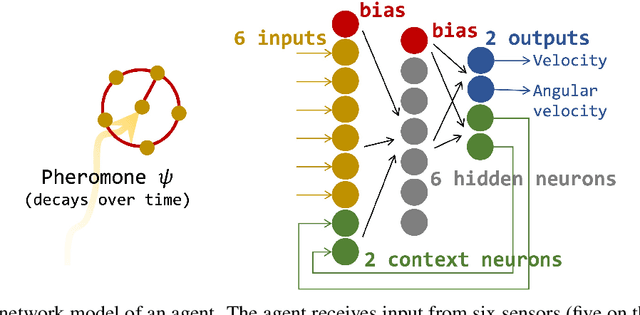
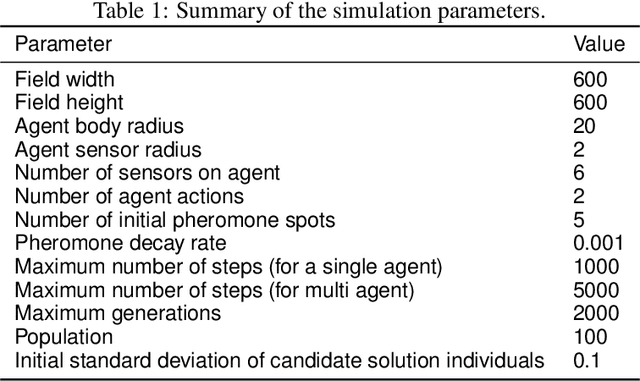
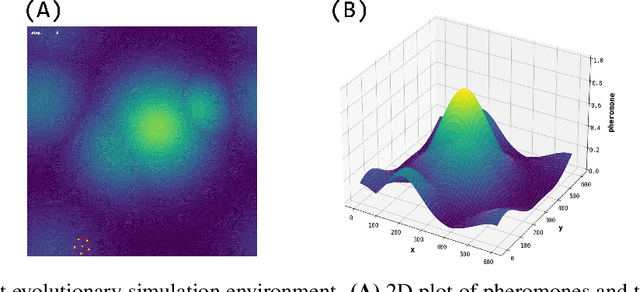
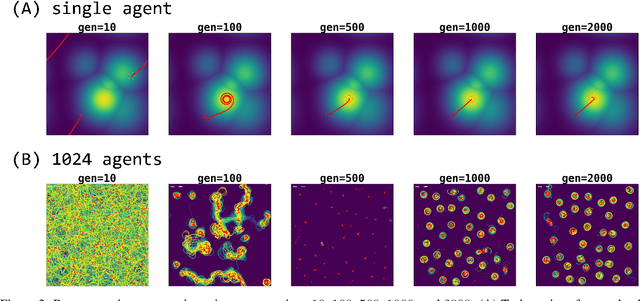
Abstract:This study investigates collective behaviors that emerge from a group of homogeneous individuals optimized for a specific capability. We created a group of simple, identical neural network based agents modeled after chemotaxis-driven vehicles that follow pheromone trails and examined multi-agent simulations using clones of these evolved individuals. Our results show that the evolution of individuals led to population differentiation. Surprisingly, we observed that collective fitness significantly changed during later evolutionary stages, despite maintained high individual performance and simplified neural architectures. This decline occurred when agents developed reduced sensor-motor coupling, suggesting that over-optimization of individual agents almost always lead to less effective group behavior. Our research investigates how individual differentiation can evolve through what evolutionary pathways.
Spontaneous Emergence of Agent Individuality through Social Interactions in LLM-Based Communities
Nov 05, 2024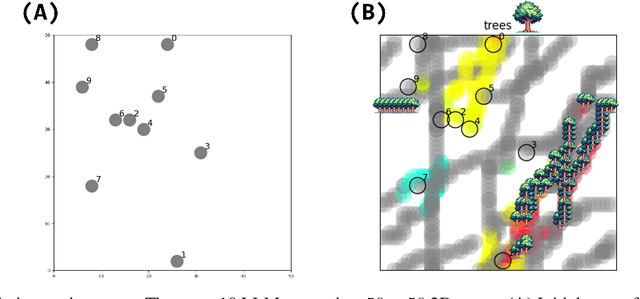
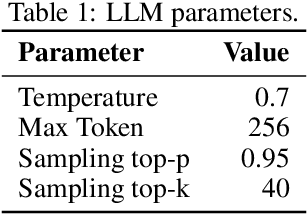

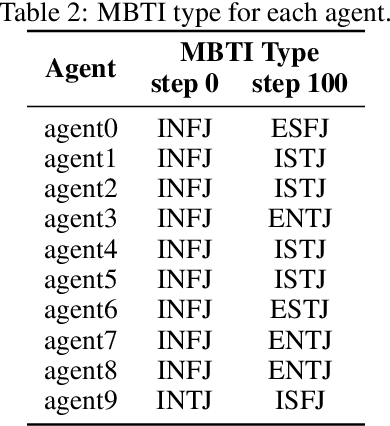
Abstract:We study the emergence of agency from scratch by using Large Language Model (LLM)-based agents. In previous studies of LLM-based agents, each agent's characteristics, including personality and memory, have traditionally been predefined. We focused on how individuality, such as behavior, personality, and memory, can be differentiated from an undifferentiated state. The present LLM agents engage in cooperative communication within a group simulation, exchanging context-based messages in natural language. By analyzing this multi-agent simulation, we report valuable new insights into how social norms, cooperation, and personality traits can emerge spontaneously. This paper demonstrates that autonomously interacting LLM-powered agents generate hallucinations and hashtags to sustain communication, which, in turn, increases the diversity of words within their interactions. Each agent's emotions shift through communication, and as they form communities, the personalities of the agents emerge and evolve accordingly. This computational modeling approach and its findings will provide a new method for analyzing collective artificial intelligence.
PAMS: Platform for Artificial Market Simulations
Sep 19, 2023Abstract:This paper presents a new artificial market simulation platform, PAMS: Platform for Artificial Market Simulations. PAMS is developed as a Python-based simulator that is easily integrated with deep learning and enabling various simulation that requires easy users' modification. In this paper, we demonstrate PAMS effectiveness through a study using agents predicting future prices by deep learning.
 Add to Chrome
Add to Chrome Add to Firefox
Add to Firefox Add to Edge
Add to Edge